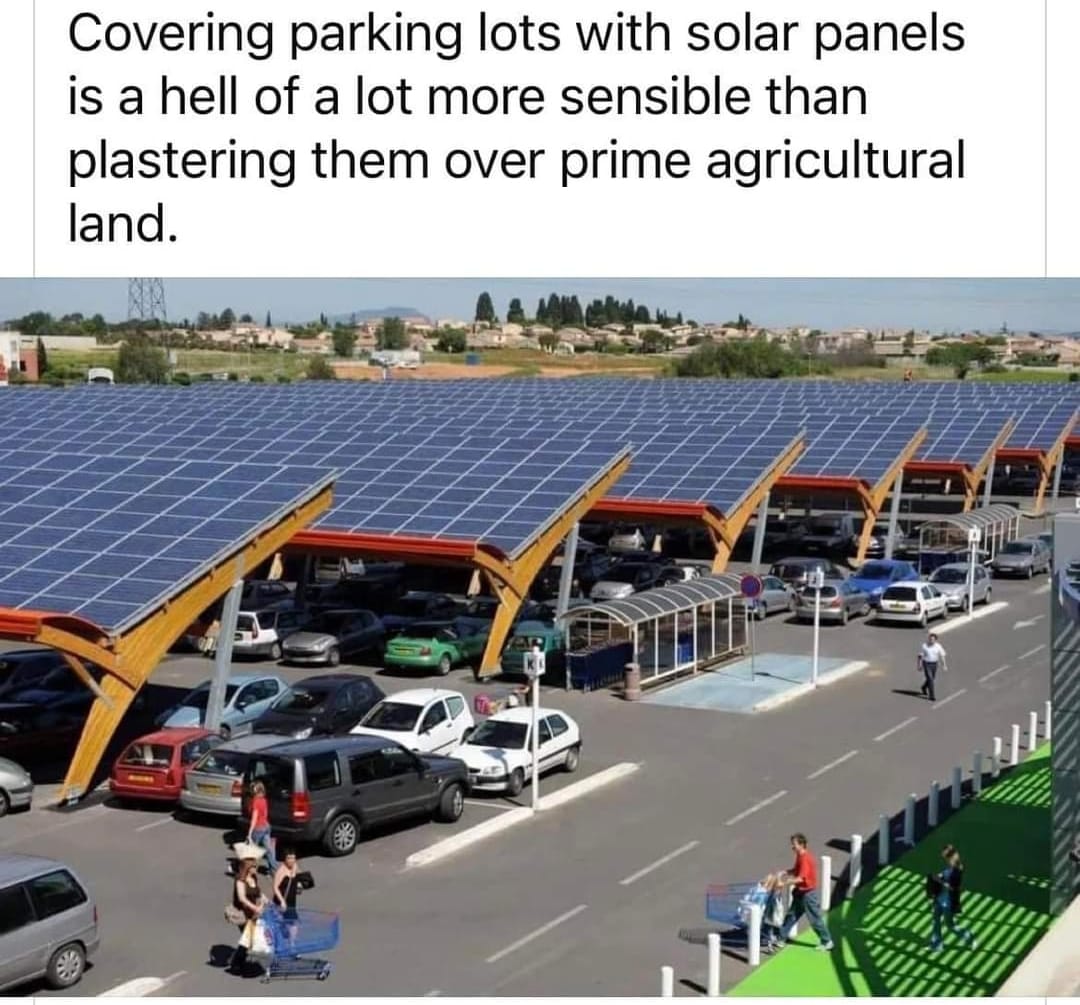this post was submitted on 13 Jul 2024
1017 points (100.0% liked)
196
16459 readers
33 users here now
Be sure to follow the rule before you head out.
Rule: You must post before you leave.
founded 1 year ago
MODERATORS
you are viewing a single comment's thread
view the rest of the comments
view the rest of the comments

Yeah like it's not always a bad thing to commit resources with less than perfect efficiency. Having renewable energy is better than having none every time.
It's not so much that they're rare as there is a known limited supply of them, and the means of harvesting them currently creates a lot of pollution. Fossil fuels are obviously worse in this regard. And even nuclear has a limited supply in terms of naturally available fuel sources.
Renewable energy should be operated in the manner that best protects the environment, and we should be trying to waste as little possible in operating it. For those reasons, I think efficiency and sunlight hours are important considerations. The fossil fuel industry is extremely wasteful and destructive. The renewable industry should be the opposite of that.
Small solar installations of a few panels, sure like they don't need perfect efficiency. But if we're committing hundreds or even thousands of panels to an installation? We should maximize efficiency.
And this is where we get into the real economic problem of any industrial scale energy project. FFS, its not like labor abuses and property mismanagement were foreign to the coal or O&G industries. But when people talk about a Green New Deal, a bit part of the project is about building social infrastructure alongside energy infrastructure, such that you're not ending up with a bunch of strip mines and company towns doing what Standard Oil/Exxon and Peabody Energy were doing 50 years ago.
The fact that these rare earth metals are in countries with large native populations that westerners are dismissive of / openly hostile to doesn't help things either. How many American petrochemical CEOs would love to revisit King Leopold II's run through the Congo, if it meant profits on par with what Saudi ARAMCO generate?
That would require a degree of political economy afforded to the folks living in and around the areas of resource extraction and labor exploitation. And that's where I think we run into real problems.
Even as we speak, the state of Georgia is gearing up for some serious labor conflicts around their EV battery plants. Labor groups are attempting to unionize the battery giga-factories being built there, while Atlanta's Cop City is being constructed to crack down on it. And that's in the relatively peaceful and post-industrial Atlantic Seaboard. Bolivia's on its second failed coup attempt in less than four years.
I could very easily see us doing an Iraq-style intervention into one of these big cobalt/lithium exporting countries, on the grounds that they're being oppressed by an evil government state nationalization program. Ask Gamal Abdel Nasser or Salvadore Allende what happens after that.